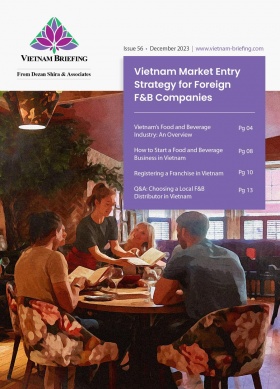Vietnam’s E-Commerce Sector Outlook in 2024
Despite the global economic slowdown, Vietnam’s e-commerce sector continues to flourish, presenting a unique opportunity for investors and businesses alike. Here’s why Vietnam remains a promising market in 2024.
Vietnam e-commerce sector continues to see high growth
Since 2022, rising inflation and geopolitical tensions have slowed the global economy, causing many e-commerce giants to downsize or reduce operations. However, where mature markets are contracting, emerging markets like Vietnam are showing robust growth. According to industry analysts, Vietnam’s e-commerce sector continues to benefit from its unique market dynamics.
In 2024, Vietnam’s e-commerce sector remains vibrant, driven by increasing consumer demand and rapid digital adoption. Despite a global revenue decline in 2022, Vietnam’s e-commerce market exhibited only slower growth rather than a full-scale contraction. The Ministry of Industry and Trade (MOIT) expects the sector to grow steadily, albeit at a more moderate pace, reaching 9 percent growth by 2025.
Looking ahead, global e-commerce revenue is projected to recover, with Statista forecasting a compound annual growth rate (CAGR) of 9.49 percent from 2024 to 2029. Vietnam is poised to benefit from this global resurgence, with its market expected to reach a value of US$32 billion by 2025. Major investors like Alibaba and SBI Holdings are already betting on this growth by investing heavily in Vietnam’s leading e-commerce platforms.
Vietnam overtakes Philippines as third largest e-commerce market in Southeast Asia
Vietnam and Thailand have become the fastest-growing e-commerce markets in Southeast Asia, with Vietnam overtaking the Philippines as the third largest in the region.
The top eight e-commerce platforms in Southeast Asia reached a GMV of US$114.6 billion in 2023, a 15 percent year-on-year increase. Vietnam’s GMV grew by 52.9 percent, the highest growth rate globally.
Indonesia remains the largest e-commerce market in ASEAN, contributing 46.9 percent of the region’s GMV. Shopee led the market with a GMV of US$55.1 billion, while TikTok Shop emerged as the second-largest platform in Southeast Asia and holds a 24 percent market share in Vietnam.
Key industry drivers include the effective use of influencers (KOLs) in e-commerce, the adoption of AI for better user experience, and operational efficiency.
During the pandemic, consumer spending in Vietnam shifted towards food and personal care products, with consumer goods becoming the largest e-commerce category in 2022. This trend has persisted, indicating sustained growth in online grocery shopping and the broader e-commerce sector.
Vietnam spending trends on e-commerce sites
A report by Vietnam News Agency citing market analysis firm Metric, highlights the significant growth and potential of Vietnam’s e-commerce market in the first half of 2024:
- Vietnamese consumers spent 143.9 trillion Vietnamese dong (US$5.68 billion) on e-commerce platforms in the first half of the year.
- This spending represented a 54.91 percent increase in value and a 65.55 percent increase in the number of items purchased compared to the same period last year.
- TikTok Shop and Shopee were the primary drivers of this growth, with revenue increases of 150.54 percent and 65.96 percent, respectively.
- The robust growth highlights Vietnam’s strong e-commerce market and the ability of sellers to capitalize on online shopping trends.
- Vietnam’s e-commerce market has seen an average annual growth rate of 16-30 percent over the past four years, the highest in Southeast Asia.
Vietnam’s digital natives: A driving force for e-commerce
Vietnam’s e-commerce sector is powered by a young, tech-savvy population. As of 2024, approximately 57 million Vietnamese shop online, with 43 percent of these consumers belonging to Gen Z. These digital natives are pushing the boundaries of online shopping, with platforms like Shopee, Lazada, Tiki, and TikTok Shop leading the way.
The rise of social commerce, particularly on platforms like TikTok, is also reshaping the e-commerce landscape. In 2024, TikTok Shop captured 23.2 percent of Vietnam’s e-commerce market share, highlighting the growing importance of social media in driving online sales.
E-commerce surpassing traditional retail
Vietnam’s rapid urbanization and the increasing popularity of online shopping are diminishing the role of traditional retail. The convenience and cost-effectiveness of e-commerce are making large shopping complexes and retail stores less relevant. McKinsey & Company predicts that by 2025, Vietnam’s e-commerce market could rival traditional retail, a trend that is not as pronounced in other parts of the world.
Leading e-commerce platforms in Vietnam
In 2024, Shopee continues to dominate the Vietnamese e-commerce market, accounting for 67.9 percent of the market share by gross merchandise value (GMV). TikTok Shop, despite being a relatively new player, has quickly gained ground, capturing a significant portion of the market.
Other platforms like Lazada and Tiki are facing stiffer competition, with their market shares shrinking in the face of TikTok’s rapid rise. Nevertheless, Vietnam’s e-commerce landscape remains dynamic, with opportunities for new entrants and existing players to innovate and capture market share.
|
Top E-Commerce Platforms in Vietnam in 2024 |
|||
|
Rank |
E-Commerce platform |
Monthly visits (Web) |
Description |
|
1 |
Shopee VN |
145.7M |
Largest comprehensive e-commerce platform in Vietnam and Southeast Asia, partly owned by Tencent. |
|
2 |
Lazada VN |
19.9M |
A major player supporting C2C, B2C, and cross-border sales with strong logistics capabilities. |
|
3 |
Tiki |
6.7M |
Vietnam’s most successful local B2C platform, originally an online bookstore, now diversified. |
|
4 |
Chiaki |
2.4M |
Specializes in the online sales of functional food, health supplements, and personal care goods. |
|
5 |
Sendo |
766.7K |
A multi-vendor marketplace operating B2C and C2C models, focusing on broad geographical reach. |
|
– |
Websosanh |
1.4M |
A price comparison platform helping users find the best deals on products and services. |
|
– |
TikTok Shop |
NA |
An emerging platform with rapid growth, particularly strong in Beauty & Personal Care products. |
|
– |
Amazon Global |
3.9M |
Popular for international products, though lacking local delivery reliability. |
|
– |
Alibaba.com |
1.4M |
A B2B wholesale giant, facilitating international trade and logistics in Vietnam. |
|
– |
SHEIN VN |
333.4K |
Popular for online retailing, with plans to expand its marketplace model globally. |
Source: TMO Group, 2024
Challenges and opportunities
While Vietnam’s e-commerce sector is growing, it faces several challenges:
- Fierce competition: The entry of new platforms and the intense competition among existing players has led to a “money-burning” race in the market.
- Regulatory hurdles: Vietnam’s e-commerce regulations are still evolving, creating challenges for businesses and potential risks for consumers.
- Consumer habits: While younger consumers are driving growth, middle-aged and elderly consumers are less comfortable with online shopping, limiting market reach.
- Human resources: The sector lacks skilled professionals with the expertise needed to compete globally.
- Logistics and infrastructure: Vietnam’s logistics and warehousing infrastructure is still developing, posing both a challenge and an opportunity for early investors. This spills over into challenges faced by sellers with parcel delivery services.
The future of Vietnam’s e-commerce market
Despite global economic uncertainty, Vietnam’s e-commerce sector is well-positioned for continued growth. With a young population, increasing disposable incomes, and a rapidly expanding middle class, Vietnam remains an attractive destination for e-commerce investment. As global e-commerce markets recover, Vietnam is likely to emerge as a key player in the region, offering significant opportunities for businesses that can navigate its unique market dynamics.
Vietnam’s e-commerce sector, while not immune to global trends, is resilient and poised for long-term growth, making it a market to watch in 2024 and beyond.
(With inputs from Melissa Cyrill.)
About Us
Vietnam Briefing is published by Asia Briefing, a subsidiary of Dezan Shira & Associates. We produce material for foreign investors throughout Asia, including ASEAN, China, and India. For editorial matters, contact us here and for a complimentary subscription to our products, please click here. For assistance with investments into Vietnam, please contact us at vietnam@dezshira.com or visit us at www.dezshira.com.
Dezan Shira & Associates assists foreign investors throughout Asia from offices across the world, including in Hanoi, Ho Chi Minh City, and Da Nang. We also maintain offices or have alliance partners assisting foreign investors in China, Hong Kong SAR, Dubai (UAE), Indonesia, Singapore, Philippines, Malaysia, Thailand, Bangladesh, Italy, Germany, the United States, and Australia.
- Previous Article Vietnam Government to Regulate Property Market if Prices Surge Over 20%
- Next Article Vietnam Establishes National Steering Committee on Semiconductor Development
































